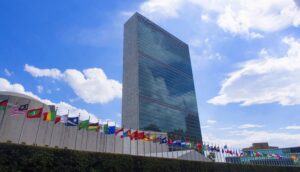KABUL (SW) – In a series of interviews, a number of Afghan girls and women in various parts of the country told Salam Watandar they fear losing jobs and facing stress because of the new set of laws ratified and implemented by the de-facto Ministry for the Propagation of Virtue and the Prevention of Vice (MoPVPV).
Girls and women who are having jobs and have to go out of home for work, say that the implementation of this law can put them and their family members at risk of starvation.
Salam Watandar interviewed with 28 women and girls from 7 provinces. In this report, 10 women from Kabul, and three women and girls from each following provinces including Kunduz, Nangarhar, Jowzjan, Faryab, Badakhshan and Kapisa shared their views.
According to Article 13 of the new law, it is necessary to cover the whole body of a woman and to hide her face due to the fear of “sedition” and her voice is also labelled as ‘awrah’ (something needs covering). It is still forbidden for taxi drivers to transport young woman without a male companion.
These new laws were published earlier on Wednesday, July 31, in four chapters and 35 articles after being compiled and approved. A number of these women and girls have called this law as an added restrictions.
Zarmina from Nangarhar province, says that after the ratification of the law, she does not leave her home because of the fear this law has created. “I don’t have any hope for the future, the universities, schools and jobs are banned. With this new law that was approved, I am very disappointed and suffering from many mental problems,” she added.
“I got fed up with my life because the restrictions are increasing day by day and it has had a negative effect on our mental and spiritual mind,” said Mastura, another resident of the province.
A number of employed women are also worried about the approval of the MoPVPV law, saying that the promulgation of this law has narrowed their living space and caused them to fear losing their jobs.
Samira, a teacher in a government school in Kunduz, said, “I am a mother and a widow. My husband died. I was very worried since I heard about the laws. We women, expect they (Islamic Emirate authorities and leadership) understand the situation of the people, and create a favorable working environment because of unemployment, poverty and immigration; but unfortunately, the laws and restrictions are increasing day by day.”
Madina, a midwife in a hospital in Kabul, also agree that the implementation of this law will cause unemployment, poverty and migration of people. “The new laws enacted are really worrying for all of us and have caused many problems. Of course, we hoped that schools and universities would be opened to girls soon, but unfortunately what they did, they did not give us any hope in the future and made us all sad. It has had a negative impact”, said Madina.
A number of other women say that the ratification and enforcement of the law is the reason for the serious limitation of their fundamental rights.
Maryam, from Kunduz province, explains, “The laws that the put, make our living conditions difficult day by day. We are only alive, we don’t live like normal people.”
Amena Faizi, from Takhar province, says that the implementation of this law causes women to lose their right to freedom, education, work and presence in society. “This law means limiting our freedom, and it has caused the level of my learning to become weaker as well as in my profession and job. It has even caused me to stop working in such conditions. The fear has affected my health. If I stay at home, it causes fear and stress,” she added.
Maryam and Fatema, students from Badakhshan province, both of whom are unable to continue their studies, expressed concerns about their future. “I was in the grade nine of school when the schools ware closed, and I have nothing to do. They take away our right to freedom and education. We have no hope,” said Maryam.
“I was a second-year student at the Badakhshan University, when the doors of universities and schools were closed to us. We really suffered a severe psychological blow, and this made us suffer from mental illness. And even now, it is even more difficult to face these new restrictions,” said Fatema.
According to the new law of Propagation of Virtue and the Prevention of Vice, among other obligations, the officials of the of MoPVPV have the authority to advise those who disobey this law, impose financial penalties and to keep them in public prisons from one hour to three days, and finally implement the punishment that is considered ‘appropriate’.
Women’s rights activists say that the law has increased restrictions on women, and they fear that employed women will lose the ability to provide for their families’ needs based on this law.
“These restrictions, which are increasing day by day, and even women’s voices are banned, are very problematic and frustrate women as there is a need for women to work out of home and provide for their families,” Women’s rights activist Parwana Barekzai told Salam Watandar.
Rashed Sediqi, a sociologist, says that according to the principles of sociology, the implementation of the law should not be tyrannical.
“If we want to implement the law in an autocratic way, then it will go away from the principles and framework of Islam. But, the same issues were present during the time of the Prophet (PBUH) and the hijab and other requirements to be respected, and the issue of non-mahram also were at that time. However, the nature of the implementation was not like this; there was no condition and serious reactions. The law that has been approved, doesn’t have a religious or social problem.”
In a recent discussion, Haibatullah Ebrahimkhil, a psychologist, highlighted the severe psychological impacts of restrictive measures. He argued that such strictness leads to significant mental health issues, including increased crime and legal violations in society. “Excessive restriction from a psychological standpoint results in negative effects, leading to mental health problems such as depression and hopelessness, which can drive individuals to self-harm or criminal activities,” Ebrahimkhil said.
Meanwhile, a religious scholar, in condition of anonymity, shared insights on Islamic views regarding women’s voices and the covering of their faces. He emphasized that a woman’s voice is generally not considered ‘awrah’ in Islam, and widowed or unaccompanied women can, while observing proper hijab and religious guidelines, go out for their needs without a male guardian.
The scholar added, “Hijab is not about cloaking or confining women in darkness but maintaining dignity between women and none-mahram men in social spaces. If a woman has a guardian, or is not a widow, poor, or without a protector, it is preferable for her to travel with a male guardian, as per the Prophet’s teachings. However, if she lacks a guardian, she can still go out to address her needs while maintaining her hijab and dignity. However, a woman’s provocative or enticing voice, which may come across as flirtatious, is considered ‘awrah’.”
The recent implementation of the ‘Promotion of Virtue and Prevention of Vice’ law, broadcast last Thursday, August 22, has sparked various reactions. Zabihullah Mujahid, spokesperson for the de-facto government of the Islamic Emirate, addressed concerns on his X account, dismissing fears over the law’s enforcement as baseless and asserted that they would not affect the Islamic Emirate’s stance.
Mujahid added, “If any non-Muslim has concerns about these laws and rejects them, they should first educate themselves about Islamic laws and respect Islamic values.”
The spokesperson further emphasized that the Islamic Emirate views objections to Sharia law as “audacity.”
Efforts to obtain a response from the Ministry of Propagation of Virtue and Prevention of Vice regarding women’s concerns about the law were unsuccessful.
The restrictions imposed on women’s work, education, and public life over the past three years have led to significant economic and other hardships for women and girls.






